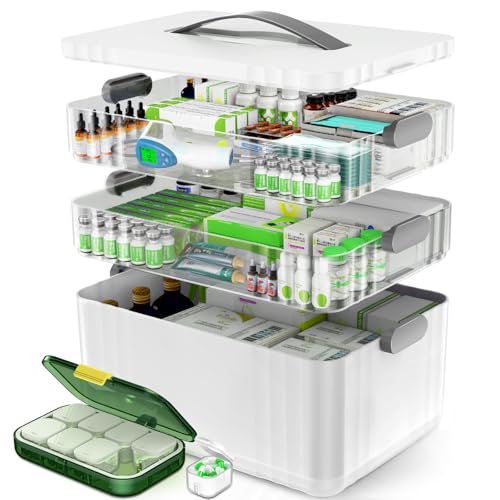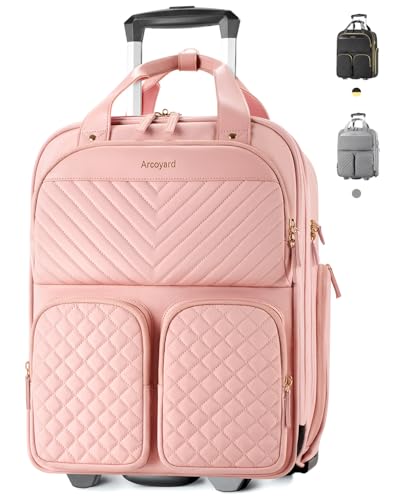


Personal health items, including prescribed treatments, are permitted in hand luggage. However, specific guidelines dictate their transport to ensure safety and compliance with regulations across airlines and airports.
Liquids that are necessary for medical purposes, such as syringes or inhalers, may exceed the standard volume limits. A declaration at security checkpoints is typically required, and packaging should remain intact. Clear documentation from a healthcare provider can further facilitate the screening process.
Maintain accessibility during travel by organizing these items in easily reachable compartments. This allows for prompt retrieval during security checks while minimizing disruption. Always verify policies with the airline beforehand, as rules regarding storage and declaration of health-related items can vary significantly.
Guidelines for Transporting Pharmaceuticals in Personal Bags
Always keep necessary prescriptions in original containers clearly labeled with your name and the prescribing physician’s details. This simplifies potential inspections at security checkpoints.
Liquids exceeding 3.4 ounces (100 milliliters) must generally be declared separately. However, exceptions exist for essential items related to healthcare; declare these to security officers for appropriate handling.
Consider a letter from your healthcare provider when traveling with specific treatments or devices. This provides added reassurance if questions arise regarding your items.
Be mindful of different regulations depending on countries or airline policies. Review both airline and destination requirements beforehand to avoid surprises.
Store items securely and accessibly within your bag for efficient retrieval during security inspections.
Consider alternative transport methods for syringes or needles, which may require special permissions in some locations.
Always carry a sufficient supply to cover your travel time, plus extra in case of delays.
| Item Type | Notes |
|---|---|
| Tablets/Capsules | Original packaging recommended, limit quantity based on travel duration. |
| Liquid Formulations | Must comply with liquid regulations; inform security. |
| Inhalers | Considered exempt from liquid limits; keep accessible. |
| Syringes/Needles | Check specific rules; might require documentation. |
Understanding Airline Regulations for Carry-On Medications
Prioritize packing prescriptions in original containers with clear labels indicating the person’s name and dosage instructions. This practice helps streamline the security screening process. Some airlines recommend keeping a copy of the prescription or a doctor’s note, especially for significant medical needs.
Liquid Limits and Special Exemptions
When it comes to liquids, the typical restriction is 3.4 ounces (100 milliliters) per container, but exceptions exist for essential items. Notify security personnel if carrying larger quantities required for specific health conditions. Be prepared for additional screening of such items.
International Regulations
Airlines may adhere to different international guidelines concerning health-related products. Research regulations of the departure and arrival countries, particularly regarding controlled substances. For added security, always carry documentation explaining the purpose of the item. This could be helpful at customs or if questions arise during travel. For outdoor activities during your trip, don’t forget to include accessories like a best value golf umbrella in your plans.
What Types of Medications Can Be Taken on Flights?
Prescription drugs in original packaging with labels are acceptable. Keep a valid prescription or doctor’s note for verification. This practice assists in avoiding complications during security checks.
Commonly Allowed Categories
- Oral Medications: Tablets and capsules are generally permitted. Ensure they are stored in their original containers.
- Liquid Medications: Up to 3.4 ounces (100 milliliters) per container is standard. Pack in a clear, quart-sized bag.
- Inhalers: Necessary for respiratory conditions, they can be taken onboard without limitation.
- Injectable Medications: Must be declared at security. Keep syringes and needles in their original packaging.
Tips for Traveling with Pharmaceuticals
- Check the specific airline’s guidelines regarding types and amounts.
- Consider packing extra doses in case of delays or emergencies.
- Store medications in an easily accessible part of your bag for swift retrieval.
How to Properly Pack Medications in Carry-On Bags
Use original packaging for all pharmaceutical items. This prevents any confusion during security checks and helps identify prescriptions easily. Ensure labels are clear and legible.
Keep a copy of prescriptions and a doctor’s note, especially for controlled substances. This documentation can clarify the necessity of specific treatments when questioned by authorities.
Optimize Accessibility
Place pharmaceuticals in an easily reachable section of your bag. This facilitates quick retrieval during security screenings. Avoid stuffing them deep into your belongings.
Compliance with Liquid Restrictions
Limit liquid forms to containers no larger than 3.4 ounces (100 milliliters). Place these items in a quart-sized resealable plastic bag. Ensure the bag is accessible for separate screening.
Consider packing alternative forms, such as pills or tablets, to minimize liquid volume and avoid restrictions. Keep all items organized to enhance efficiency through security checkpoints.
Documentation Needed for Prescription Medications
Always carry a copy of the prescription from a licensed healthcare provider when traveling with prescription drugs. This document serves as proof that the medication is for personal use and has been prescribed legally.
Additional Requirements
Consider obtaining a medication list that includes the generic and brand names, dosages, and instructions for use. This list should be printed and kept alongside the prescribed documents. Travelers with medications that contain controlled substances should be aware of regulations specific to each country. Some destinations have stricter laws regarding certain drugs.
Travel with Labels
Keep medications in their original containers, clearly labeled with the patient’s name, prescribing doctor, and pharmacy details. This ensures easy identification during security checks and helps avoid confusion. Always check the regulations of the airlines and the countries of destination to ensure compliance.
For more information on travel regulations in different areas, including the topic of drone usage, refer to this source.
Tips for Traveling with Over-the-Counter Medications
Select small packaging for OTC items to maximize space and ease of access. Consider transferring pills into clear, labeled containers for faster identification during security checks.
Keep Medications Accessible
Place over-the-counter supplies in a separate pouch or compartment within your bag for quick retrieval. This minimizes delays at security checkpoints and ensures you have what you need during the flight.
Check Country Regulations
Research the regulations of your destination regarding OTC items, as some countries have restrictions on specific products. Always carry an ingredient list for clarity at customs if needed.
Utilize travel-friendly accessories like a best running waist smart phone packs for mne to keep necessary items secure and within reach while on the go, allowing for a hassle-free experience.







